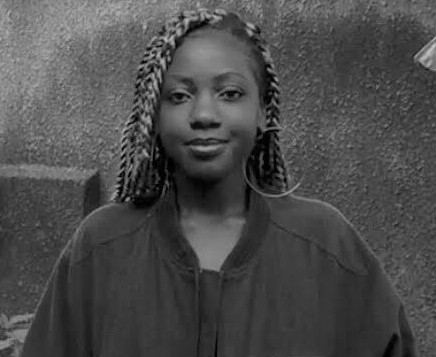Young, African & Female: A Tech journey
 Busigu Faith Daka
Busigu Faith Daka
My first interaction with software was when I was 10. My mum had just gotten a computer and internet modem to work with while at home, and I had just heard of this platform on the internet that allowed people to talk to other people without using a phone (mind-blowing right!). So I opened Internet Explorer, searched for the term "facebook" and was impressed by how clicking this search button was able to present a myriad of results. At the time I had no interest to find out how it worked, I just wanted to create my Facebook (Meta) account and talk to new people.
Fast-forward to me being 18, ready for the university and with no idea what career path I wanted. I was always good at sciences which made it seem quite obvious for me to pursue an engineering degree but internally I didn't want that. So ensued my career path research. This went on for days and days and days and I vividly remember being so frustrated with my inability to understand myself, that I considered not pursuing a degree all together.
Looking back, I attribute my frustration to the bad professional visuals I had been presented with since I was younger. Allow me explain:
As humans, the image of people we see succeed in a profession tends to define "what" that select success looks like. And when someone that looks unusual breaks that visual box, that's when our mental ice breaks and intrigue starts brewing.
In my environment I was encouraged to shoot for the stars but it also had to be a realistic shot, therefore my career choices as a girl good at sciences were tied down to: civil engineering, electrical engineering and teaching. Mechanical engineering was considered too difficult for my kind (young, african and female). A career in Information Technology meant I'd end up working in a room with a lot of wires and a broken fan, while fixing broken keyboards. This was not acceptable and that is what I attribute to bad professional visuals.
I personally didn't have the slightest idea about a career in software development because the visuals I saw constantly. Those that succeeded in the profession where: white, male and had studied from Ivy league universities. So their stories never related to me and I could never see myself amounting to the same level of knowledge or success. This meant that I had mentally blocked off that profession without realising it.
The call for diversification in industries is such a broad conversation because of the passive impact visuals have on people's professional aggression. Those that are privileged to explore in various spaces and discover themselves are absolutely blessed, but for most of us there's no room for trial and error.
Routing back to the research I was conducting before university. On day something I had a sit down with my 3 remaining brain cells and conducted an in-depth search on what it was I liked about life. I found out I enjoyed being around hardware and this narrowed down the research scope tremendously. The next step was finding out what I liked about hardware, which I found out was the way it could be programmed to do whatever was required. The final step was me finding out that I wanted to be the one that programs the hardware to do whatever was required, and how could I learn that: Computer Science!
It was an actual light bulb moment that I'll remember for the rest of my life. My first interaction with software at 10, where I didn't need instructions on how to use the internet or a search engine, actually made sense after that moment. But because of the preceding 8 years in which I didn't see anyone like me in the technology space, I couldn't even expound on the thought I had at 10 which was "What if I created a search engine in my local language?" (Who knows where I'd be now :) )
Right now I'm a software engineer developing web applications, working with a number of talented people around the world and making an impact one commit at a time. My journey to becoming a developer also took a certain amount of soul searching but because of the women I started interacting with and the mentorship spaces I joined, I was empowered to think beyond gender.
Technology is a space where your work can clearly speak for you. It's no longer a boy's club and women all over the world are proving that over and over again.
I'm not nearly where I want to be (still have A LOT to learn), but I know I will break all walls necessary to get there. This is without dealing with the misogyny and undermining that comes with male environments, but these allow me clap back with great work. I enjoy sharing my experiences so far because I know the more women in this profession speak, the greater the trajectory of our collective stories being heard and relating to someone that needs it. Be empowered to break your mental ice everyday and view success beyond the visual boxes.
I don't work at MAANG or earn a 5-6 figure($) salary (which speaks to my African experience of being severely underpaid) or have google-worthy achievements but I still aspire to make the experience easier for the girl(s) after to me. She/They should not be profiled by gender, race, background, appearance or age in order to get the job.
Self belief is all the power you need. Ohh, plus a github profile :)
Disclaimer: Not all male environments/men exist to demean you, but don't take it lightly when they do.
Subscribe to my newsletter
Read articles from Busigu Faith Daka directly inside your inbox. Subscribe to the newsletter, and don't miss out.
Written by

Busigu Faith Daka
Busigu Faith Daka
Actively a front-end web developer, passively analysing data and creatively expressing myself through poetry. <>she/programmer</>